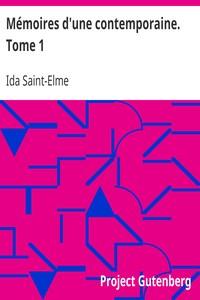Read this ebook for free! No credit card needed, absolutely nothing to pay.
Words: 75660 in 22 pages
This is an ebook sharing website. You can read the uploaded ebooks for free here. No credit cards needed, nothing to pay. If you want to own a digital copy of the ebook, or want to read offline with your favorite ebook-reader, then you can choose to buy and download the ebook.


: Poems of Henry Vaughan Silurist Volume II by Vaughan Henry Beeching H C Henry Charles Commentator Chambers E K Edmund Kerchever Editor - Poetry
UPON MR. FLETCHER'S PLAYS, PUBLISHED 1647.
I knew thee not, nor durst attendance strive, Label to wit, verser remonstrative, And in some suburb-page--scandal to thine-- Like Lent before a Christmas scatter mine. This speaks thee not, since at the utmost rate Such remnants from thy piece entreat their date; Nor can I dub the copy, or afford Titles to swell the rear of verse with lord; Nor politicly big, to inch low fame, Stretch in the glories of a stranger's name, And clip those bays I court; weak striver I, But a faint echo unto poetry. I have not clothes t'adopt me, nor must sit For plush and velvet's sake, esquire of wit. Yet modesty these crosses would improve, And rags near thee, some reverence may move. I did believe--great Beaumont being dead-- Thy widow'd Muse slept on his flow'ry bed; But I am richly cozen'd, and can see Wit transmigrates: his spirit stay'd with thee; Which, doubly advantag'd by thy single pen, In life and death now treads the stage again. And thus are we freed from that dearth of wit Which starv'd the land, since into schisms split, Wherein th' hast done so much, we must needs guess Wit's last edition is now i' th' press. For thou hast drain'd invention, and he That writes hereafter, doth but pillage thee. But thou hast plots; and will not the Kirk strain At the designs of such a tragic brain? Will they themselves think safe, when they shall see Thy most abominable policy? Will not the Ears assemble, and think't fit Their Synod fast and pray against thy wit? But they'll not tire in such an idle quest; Thou dost but kill, and circumvent in jest; And when thy anger'd Muse swells to a blow 'Tis but for Field's, or Swansted's overthrow. Yet shall these conquests of thy bays outlive Their Scottish zeal, and compacts made to grieve The peace of spirits: and when such deeds fail Of their foul ends, a fair name is thy bail. But--happy thou!--ne'er saw'st these storms, our air Teem'd with even in thy time, though seeming fair. Thy gentle soul, meant for the shade and ease, Withdrew betimes into the Land of Peace. So nested in some hospitable shore The hermit-angler, when the mid-seas roar, Packs up his lines, and--ere the tempest raves-- Retires, and leaves his station to the waves. Thus thou died'st almost with our peace, and we This breathing time thy last fair issue see, Which I think such--if needless ink not soil So choice a Muse--others are but thy foil. This, or that age may write, but never see A wit that dares run parallel with thee. True, Ben must live! but bate him, and thou hast Undone all future wits, and match'd the past.
UPON THE POEMS AND PLAYS OF THE EVER-MEMORABLE MR. WILLIAM CARTWRIGHT.
I did but see thee! and how vain it is To vex thee for it with remonstrances, Though things in fashion; let those judge, who sit Their twelve pence out, to clap their hands at wit I fear to sin thus near thee; for--great saint!-- 'Tis known true beauty hath no need of paint. Yet, since a label fix'd to thy fair hearse Is all the mode, and tears put into verse Can teach posterity our present grief And their own loss, but never give relief; I'll tell them--and a truth which needs no pass-- That wit in Cartwright at her zenith was. Arts, fancy, language, all conven'd in thee, With those grand miracles which deify The old world's writings, kept yet from the fire Because they force these worst times to admire. Thy matchless genius, in all thou didst write, Like the sun, wrought with such staid heat and light, That not a line--to the most critic he-- Offends with flashes, or obscurity. When thou the wild of humours track'st, thy pen So imitates that motley stock in men, As if thou hadst in all their bosoms been, And seen those leopards that lurk within. The am'rous youth steals from thy courtly page His vow'd address, the soldier his brave rage; And those soft beauteous readers whose looks can Make some men poets, and make any man A lover, when thy slave but seems to die, Turn all his mourners, and melt at the eye. Thus thou thy thoughts hast dress'd in such a strain As doth not only speak, but rule and reign; Nor are those bodies they assum'd dark clouds, Or a thick bark, but clear, transparent shrouds, Which who looks on, the rays so strongly beat They'll brush and warm him with a quick'ning heat; So souls shine at the eyes, and pearls display Through the loose crystal-streams a glance of day. But what's all this unto a royal test? Thou art the man whom great Charles so express'd! Then let the crowd refrain their needless hum, When thunder speaks, then squibs and winds are dumb.
Fresh as the hours may all your pleasures be, And healthful as eternity! Sweet as the flowers' first breath, and close As th' unseen spreadings of the rose, When he unfolds his curtain'd head, And makes his bosom the sun's bed!
Soft as yourselves run your whole lives, and clear As your own glass, or what shines there! Smooth as heav'n's face, and bright as he When without mask or tiffany! In all your time not one jar meet But peace as silent as his feet!
Like the day's warmth may all your comforts be, Untoil'd for, and serene as he, Yet free and full as is that sheaf Of sunbeams gilding ev'ry leaf, When now the tyrant-heat expires And his cool'd locks breathe milder fires!
And when no more on earth you must remain, Invited hence to heav'n again, Then may your virtuous, virgin-flames Shine in those heirs of your fair names, And teach the world that mystery, Yourselves in your posterity!
So you to both worlds shall rich presents bring, And, gather'd up to heav'n, leave here a spring.
AN ELEGY ON THE DEATH OF MR. R. HALL, SLAIN AT PONTEFRACT, 1648.
I knew it would be thus! and my just fears Of thy great spirit are improv'd to tears. Yet flow these not from any base distrust Of a fair name, or that thy honour must Confin'd to those cold relics sadly sit In the same cell an obscure anchorite. Such low distempers murder; they that must Abuse thee so, weep not, but wound thy dust. But I past such dim mourners can descry Thy fame above all clouds of obloquy, And like the sun with his victorious rays Charge through that darkness to the last of days. 'Tis true, fair manhood hath a female eye, And tears are beauteous in a victory, Nor are we so high-proof, but grief will find Through all our guards a way to wound the mind; But in thy fall what adds the brackish sum More than a blot unto thy martyrdom? Which scorns such wretched suffrages, and stands More by thy single worth than our whole bands. Yet could the puling tribute rescue ought In this sad loss, or wert thou to be brought Back here by tears, I would in any wise Pay down the sum, or quite consume my eyes. Thou fell'st our double ruin; and this rent Forc'd in thy life shak'd both the Church and tent. Learning in others steals them from the van, And basely wise emasculates the man, But lodg'd in thy brave soul the bookish feat Serv'd only as the light unto thy heat. Thus when some quitted action, to their shame, And only got a discreet coward's name, Thou with thy blood mad'st purchase of renown, And died'st the glory of the sword and gown. Thy blood hath hallow'd Pomfret, and this blow --Profan'd before--hath church'd the Castle now. Nor is't a common valour we deplore, But such as with fifteen a hundred bore, And lightning-like--not coop'd within a wall-- In storms of fire and steel fell on them all. Thou wert no woolsack soldier, nor of those Whose courage lies in winking at their foes, That live at loopholes, and consume their breath On match or pipes, and sometimes peep at death; No, it were sin to number these with thee, But that--thus pois'd--our loss we better see. The fair and open valour was thy shield, And thy known station, the defying field. Yet these in thee I would not virtues call, But that this age must know that thou hadst all. Those richer graces that adorn'd thy mind Like stars of the first magnitude, so shin'd, That if oppos'd unto these lesser lights All we can say is this, they were fair nights. Thy piety and learning did unite, And though with sev'ral beams made up one light, And such thy judgment was, that I dare swear Whole councils might as soon and synods err. But all these now are out! and as some star Hurl'd in diurnal motions from far, And seen to droop at night, is vainly said To fall and find an occidental bed, Though in that other world what we judge West Proves elevation, and a new, fresh East; So though our weaker sense denies us sight, And bodies cannot trace the spirit's flight, We know those graces to be still in thee, But wing'd above us to eternity. Since then--thus flown--thou art so much refin'd That we can only reach thee with the mind, I will not in this dark and narrow glass Let thy scant shadow for perfections pass, But leave thee to be read more high, more quaint, In thy own blood a soldier and a saint.
TO MY LEARNED FRIEND, MR. T. POWELL, UPON HIS TRANSLATION OF MALVEZZI'S CHRISTIAN POLITICIAN.
Free books android app tbrJar TBR JAR Read Free books online gutenberg
More posts by @FreeBooks


: Mémoires d'une contemporaine. Tome 1 Souvenirs d'une femme sur les principaux personnages de la République du Consulat de l'Empire etc... by Saint Elme Ida - France History 1789-1815 FR Biographie Mémoires Journal intime Correspondance







